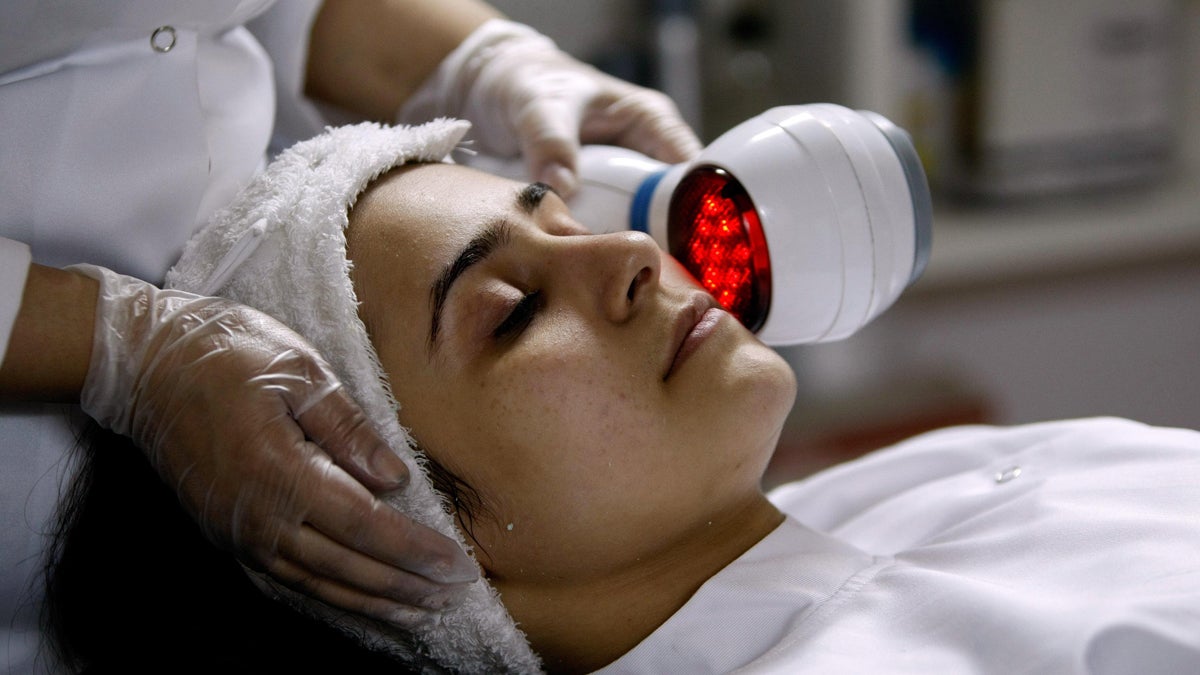Penn researchers use hormones to change skin tone

A doctor uses a machine to heat up the skin of a patient receiving treatment to lighten her skin (Hassan Ammar/AP Photo)
Researchers at a University of Pennsylvania lab have figured out how to lighten and darken skin tone using the hormones estrogen and progesterone. They’re touting it as a way to help people who have medical conditions that lead to some part of their skin getting darker or lighter than normal.
The team isolated receptors previously unstudied in skin cells. When estrogen reaches the receptor it activates the production of melanin, darkening it. The researchers have also developed synthetic estrogen and progesterone derivatives to activate the process in the other direction. Real hormones could potentially affect other systems in the body if applied to the skin, and they wanted to avoid that.
Todd Ridky, one of the authors of the study, said there’s an unmet need for a product that can effectively change skin tone.
“There is a medical need to modulate and correct disorders of pigmentation. We see this in the clinic every week. Patients will come in and they’ve had something, and their skin ends up either lighter or darker than their normal baseline color and they want to correct it,” Ridky said.
Ridky also sees cosmetic applications, though some of them are controversial.
People around the world spend billions annually to either darken or lighten skin — from tanning salons and bronzing sprays to creams that promise to lighten complexions — and Ridky said many of the currently available methods aren’t safe. Tanning, for example, can lead to cancer. And, Ridky said, “there are products in China, Japan, India for skin lightening that are based on a lot of toxic stuff: mercury, arsenic. So if there was an alternative to that, globally, there’s a large unmet clinical need as well for safer products.”
The team is now trying to raise money to develop a cream and go through proper safety testing to do human trials.
WHYY is your source for fact-based, in-depth journalism and information. As a nonprofit organization, we rely on financial support from readers like you. Please give today.

